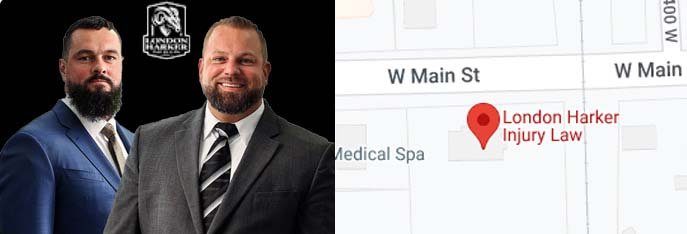When a loved one dies due to someone else’s actions, the legal terminology surrounding the event can be confusing and overwhelming. Two common but distinct terms that arise in these cases are wrongful death and homicide. While both refer to situations where a human life is lost at the hands of another, they involve completely different legal processes and objectives.
Understanding the difference between wrongful death and homicide is essential if you’re seeking justice or compensation after a tragic loss. Below, we break down these two legal concepts and explain how they may both apply to a single incident.
What Is Homicide?
Homicide is a general legal term that refers to the killing of one person by another. Not all homicides are criminal—some may be legally justified.
Key aspects of homicide include:
-
Definition: The act of one person killing another, either lawfully or unlawfully.
-
Types:
-
Lawful homicide: Includes killings in self-defense or by law enforcement officers acting within legal authority.
-
Unlawful homicide: Includes murder and manslaughter and is prosecuted as a criminal offense.
-
Legal Process: Handled in criminal court, where the state brings charges against the accused.
-
Goal: To punish the offender and protect public safety.
-
Burden of Proof: Requires proof beyond a reasonable doubt, a high legal standard.
-
Penalties: May include imprisonment, fines, probation, or even the death penalty in certain jurisdictions.
What Is Wrongful Death?
Wrongful death, on the other hand, is a civil legal claim brought by surviving family members or the estate of the deceased. It arises when a person dies due to the negligence, recklessness, or intentional misconduct of another person or entity.
Key aspects of wrongful death include:
-
Definition: A legal action claiming that a person’s death was caused by another party’s wrongful act or failure to act.
-
Legal Process: Filed in civil court by family members or a personal representative of the deceased.
-
Goal: To obtain financial compensation for the loss of the loved one.
-
Burden of Proof: The plaintiff must prove the claim by a preponderance of the evidence (i.e., more likely than not).
-
Damages: May include:
-
Medical expenses
-
Funeral and burial costs
-
Lost income and future earnings
-
Loss of companionship or consortium
-
Emotional distress
-
Punitive damages (in cases of extreme misconduct)
| Legal Feature |
Homicide (Criminal) |
Wrongful Death (Civil) |
| Purpose |
Punish the offender |
Compensate the victim’s family or estate |
| Court System |
Criminal court |
Civil court |
| Parties Involved |
State vs. Defendant |
Family/Estate vs. Defendant |
| Burden of Proof |
Beyond a reasonable doubt |
Preponderance of the evidence |
| Outcome |
Jail, fines, probation, or death penalty |
Monetary damages awarded to plaintiff |
| Double Jeopardy |
Applies—cannot be tried twice if acquitted |
Does not apply—can still be sued civilly if acquitted |
Can One Incident Lead to Both?
Yes. In many cases, the same event can give rise to both a criminal prosecution for homicide and a civil wrongful death lawsuit.
One of the most well-known examples is the O.J. Simpson case. He was acquitted of murder in criminal court but was later found liable for wrongful death in civil court and ordered to pay millions in damages.
This is possible because the burden of proof is lower in civil court. Even if a defendant is not guilty of a crime, they can still be held civilly liable for wrongful death.
When to Consider Filing a Wrongful Death Claim
If your loved one died due to another’s negligence or intentional act, you may have the legal right to pursue a wrongful death lawsuit. In Utah, wrongful death claims are governed by Utah Code § 78B-3-106.
Key eligibility considerations:
-
Who Can File: Immediate family members (spouse, children, parents) or the estate’s personal representative.
-
Proving the Case: Must show duty of care, breach of that duty, causation, and resulting damages.
-
Time Limits: Utah’s statute of limitations is typically two years from the date of death (shorter if a government entity is involved).
Final Thoughts
Though both homicide and wrongful death involve the tragic loss of life, they represent very different legal paths. Homicide is a criminal matter prosecuted by the state with the goal of punishing the wrongdoer. Wrongful death is a civil matter initiated by loved ones to seek compensation for their loss.
Understanding these legal distinctions is crucial when pursuing justice for a wrongful death in Utah. Whether or not criminal charges are filed, your family may still be entitled to significant civil remedies.
If you’re uncertain about your next steps, contact a trusted Utah wrongful death attorney today to protect your rights and secure the compensation your family deserves.



